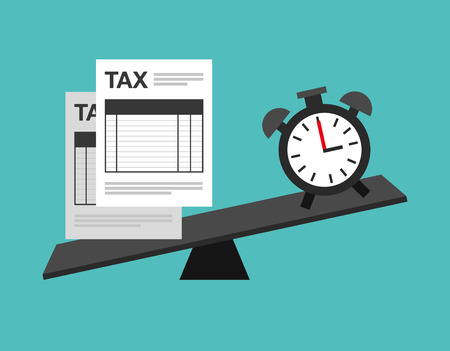Small Business: Top Tips to Manage Cash flow
 If you run a small business, you’ll know first-hand about the challenge in managing cash flow. At TaxAgility, we have witnessed many cases where business owners are certain about achieving sales targets and profitability by the end of the year, yet they encounter negative cash flow in the process, hampering their growth plan or even putting them out of business because they cant pay their bills.
If you run a small business, you’ll know first-hand about the challenge in managing cash flow. At TaxAgility, we have witnessed many cases where business owners are certain about achieving sales targets and profitability by the end of the year, yet they encounter negative cash flow in the process, hampering their growth plan or even putting them out of business because they cant pay their bills.
Cash flow management is essential, and this is where we can help. Apart from bookkeeping and accounting services dedicated to small businesses across London, we also offers management consultancy where we work with you in two specific areas:
- Business plans, forecasts and projections
- Credit control and cash management procedures
With that in mind, we’d like to share some top tips in helping you manage your cash flow.
1. Focus on Cash Flow, not Profits – you probably have heard this from other entrepreneurs and it really is a golden rule. The first step is to create a cash flow worksheet, tracking each payable and receivable for the next week, next month, next quarter, and the whole financial year. Use Excel, or other software to help with the task. After a while, you can definitely see the payment patterns from your clients and your vendors’ patience; while you become good at planning, from spotting new opportunities to anticipating expenditures.
2. Collect Receivables – we all know the downside of people not paying your bills on time. So here are some helpful tips aiming to motivate clients to pay up quickly:
- Require a deposit payment at the time of order whenever you can.
- Issue invoices promptly.
- Offer discounts to clients who pay their bills within a certain time period (like during the first 5 days).
- 1 week before the due date, follow up with a reminder.
- If clients are still not paying after the due date, follow up with a phone call.
- If you know a particular client who is slow in paying their bills, then you can either impose a late-payment charge or institute a cash on delivery policy.
3. Surviving Negative Cash Flow – getting an overdraft from time to time to tide yourself over a challenging period is not usual. The bad news is bank may not want to approve your overdraft; but the good news is the UK government has passed an Act which now requires the UK’s nine major banks to refer you to an alternative provider (if they refuse to finance you).
In fact, there are three online platforms pre-approved to receive these referrals and help small business owners with financial options. They are: Funding Options, Business Finance Compared and Funding Xchange. These online platforms aim to make the financing process clear, easy, and transparent – you even have the control to choose which lenders you want and the payment terms. Apart from the standard loan, you can also try Invoice Financing, whereby you draw money against sales invoices before customers pay.
If you want to know more about managing your cash flow and how we can help, contact us today on 020 8780 2349 or get in touch with us via our contact page to arrange a complimentary, no obligation meeting.
Autumn Statement 2016 edition of Tax Tips & News
Individuals
Personal allowance and basic rate limit for 2017-18
The personal allowance for 2017-18 will be increased to £11,500 (£11,000 in 2016-17), and the basic rate limit will be increased to £33,500 (£32,000 in 2016-17). The additional rate threshold will remain at £150,000 in 2017-18. It was announced that the allowance will rise to £12,500 by the end of Parliament.
The marriage allowance will rise from £1,100 in 2016-17 to £1,150 in 2017-18.
Blind person's allowance will rise from £2,290 in 2016-17 to £2,320 in 2017-18.
Starting rate for savings
The band of savings income that is subject to the 0% starting rate will remain at its current level of £5,000 for 2017-18.
Dates for 'making good' on benefits-in-kind
As announced at Budget 2016 and following a period of consultation, Finance Bill 2017 will include provisions to ensure an employee who wants to 'make good', on a non-payrolled benefit in kind will have to make the payment to their employer by 6 July in the following tax year. 'Making good' is where the employee makes a payment in return for the benefit-in-kind they receive. This reduces its taxable value. This will have effect from April 2017.
Assets made available without transfer of ownership
Existing legislation is to be clarified to ensure that employees will only be taxed on business assets for the period that the asset is made available for their private use. This will take effect from 6 April 2017.
Termination payments
As announced at Budget 2016, from April 2018 termination payments over £30,000, which are subject to income tax, will also be subject to employer NICs. Following a technical consultation, tax will only be applied to the equivalent of an employee's basic pay if their notice is not worked, making it simpler to apply the new rules. The government will monitor this change and address any further manipulation. The first £30,000 of a termination payment will remain exempt from income tax and National Insurance.
Company car tax bands and rates for 2020-21
To provide stronger incentives for the purchase of ultra-low emissions vehicles (ULEVs), new, lower bands will be introduced for the lowest emitting cars. The appropriate percentage for cars emitting greater than 90g CO2/km will rise by 1 percentage point.
Cars, vans and fuel benefit charges
The company car fuel benefit charge multiplier will be £22,600 for 2017-18 (rising from £22,200 in 2016-17).
The van fuel benefit charge will rise from £598 to £610 for 2017-18.
The van benefit charge will rise from £3,170 to £3,230 for 2017-18.
Life insurance policies
Finance Bill 2017 will contain provisions regarding the disproportionate tax charges that arise in certain circumstances from life insurance policy part-surrenders and part-assignments. This will allow applications to be made to HMRC to have the charge recalculated on a 'just and reasonable' basis. The changes will take effect from 6 April 2017 and are designed to lead to fairer outcomes for policyholders.
NS&I Investment Bond
From Spring 2017, National Savings and Investments (NS&I), the government-backed investment organisation, will offer a new three-year Investment Bond with an indicative rate of 2.2%. The bond will offer the flexibility for investors to save between £100 and £3,000 and will be available to those aged 16 or over.
Personal Portfolio Bonds
As announced at Budget 2016 and following a period of consultation, the government will legislate in Finance Bill 2017 to take a power to amend by regulations the list of assets that life insurance policyholders can invest in without triggering tax anti-avoidance rules. The changes will take effect on Royal Assent of Finance Bill 2017.
ISA, Junior ISA and Child Trust Fund investment limits
The annual subscription limit for Junior ISAs and Child Trust Funds are to rise in line with the Consumer Prices Index (CPI) to £4,128 from 6 April 2017.
As previously announced, the ISA subscription limit will also rise from 6 April 2017, from £15,240 to £20,000.
National Living Wage and National Minimum Wage increases
From April 2017, the National Living Wage (NLW) for those aged 25 and over will increase from £7.20 per hour to £7.50 per hour. The National Minimum Wage (NMW) will also increase from April 2017 as follows:
- for 21 to 24 year olds - from £6.95 per hour to £7.05;
- for 18 to 20 year olds - from £5.55 per hour to £5.60;
- for 16 to 17 year olds - from £4.00 per hour to £4.05;
- for apprentices - from £3.40 per hour to £3.50.
The government announced that £4.3 million is to be spent on helping small businesses to understand the rules, and cracking down on employers who are breaking the law by not paying the minimum wage.
Consultation on reducing money purchase annual allowance
The pension flexibilities introduced in April 2015 gave savers the ability to access their pension savings flexibly, as best suits their needs. Once a person has accessed pension savings flexibly, if they wish to make any further contributions to a defined contribution pension, tax-relieved contributions are restricted to a special money purchase annual allowance (MPAA).
As announced in the Autumn Statement, a consultation has been launched relating to government proposals to reduce the MPAA to £4,000, with effect from April 2017. The consultation will run until 15 February 2017.
Foreign pensions
The tax treatment of foreign pensions is to be more closely aligned with the UK's domestic pension tax regime by bringing foreign pensions and lump sums fully into tax for UK residents, to the same extent as domestic ones. The government will also close specialist pension schemes for those employed abroad ('section 615' schemes) to new saving, extend from five to ten years the taxing rights over recently emigrated non-UK residents' foreign lump sum payments from funds that have had UK tax relief, align the tax treatment of funds transferred between registered pension schemes, and update the eligibility criteria for foreign schemes to qualify as overseas pensions schemes for tax purposes.
Cracking down on tax avoiders and those who help them
A new penalty is to be introduced for those helping someone else to use a tax avoidance scheme. Significant penalties may be imposed where HMRC successfully defeat avoidance schemes. The new penalty will ensure that those who help tax avoiders participate in avoidance schemes also face the consequences. In addition, tax avoiders will not be able to claim as a defence against penalties that relying on non-independent tax advice is taking reasonable care.
The taxation of different forms of remuneration
Employers can choose to remunerate their employees in a range of different ways in addition to a cash salary. The tax system currently treats these different forms of remuneration inconsistently and sometimes more generously. The government will therefore consider how the system could be made fairer between workers carrying out the same work under different arrangements and will look specifically at how the taxation of benefits in kind and expenses could be made fairer and more coherent. Proposed changes in this area are as follows:
- Salary sacrifice - following consultation, the tax and employer National Insurance advantages of salary sacrifice schemes will be removed from April 2017, except for arrangements relating to pensions (including advice), childcare, Cycle to Work and ultra-low emission cars. This will mean that employees swapping salary for benefits will pay the same tax as the vast majority of individuals who buy them out of their post-tax income. Arrangements in place before April 2017 will be protected until April 2018, and arrangements for cars, accommodation and school fees will be protected until April 2021;
- Valuation of benefits in kind - the government is currently reviewing how benefits in kind are valued for tax purposes - a consultation on employer-provided living accommodation, and a call for evidence on the valuation of all other benefits in kind, will be published at Budget 2017;
- Employee business expenses - at Budget 2017, the government will publish a call for evidence on the use of the income tax relief for employees' business expenses, including those that are not reimbursed by their employer.
Legal support
From April 2017, all employees called to give evidence in court will no longer need to pay tax on legal support from their employer. This will help support all employees and ensure fairness in the tax system, as currently only those requiring legal support because of allegations against them can use the tax relief.
Non-domiciled individuals
As previously announced, from April 2017, non-domiciled individuals will be deemed UK-domiciled for tax purposes if they have been UK resident for 15 of the past 20 years, or if they were born in the UK with a UK domicile of origin. Non-domiciled individuals who have a non-UK resident trust set up before they become deemed-domiciled in the UK will not be taxed on income and gains arising outside the UK and retained in the trust.
From April 2017, inheritance tax will be charged on UK residential property when it is held indirectly by a non-domiciled individual through an offshore structure, such as a company or a trust. This closes a loophole that has been used by non-domiciled individuals to avoid paying inheritance tax on their UK residential property.
The government will change the rules for the Business Investment Relief (BIR) scheme from April 2017 to make it easier for non-domiciled individuals who are taxed on the remittance basis to bring offshore money into the UK for the purpose of investing in UK businesses. The government will continue to consider further improvements to the rules for the scheme to attract more capital investment in British businesses by non-domiciled individuals.
Inheritance tax reliefs
From Royal Assent of Finance Bill 2017, inheritance tax relief for donations to political parties will be extended to parties with representatives in the devolved legislatures, as well as parties that have acquired representatives through by-elections. This measure is designed to ensure consistent and fair treatment for all national political parties with elected representatives.
Social Investment Tax Relief (SITR)
From 6 April 2017, the amount of investment social enterprises aged up to 7 years old can raise through SITR will increase to £1.5 million. Other changes will be made to ensure that the scheme is well targeted. Certain activities, including asset leasing and on-lending, will be excluded. Investment in nursing homes and residential care homes will be excluded initially, however the government intends to introduce an accreditation system to allow such investment to qualify for SITR in the future. The limit on full-time equivalent employees will be reduced to 250. The government will undertake a review of SITR within two years of its enlargement.
Offshore funds
UK taxpayers invested in offshore reporting funds pay tax on their share of a fund's reportable income, and capital gains tax (CGT) on any gain on disposal of their shares or units. The government will legislate to ensure that performance fees incurred by such funds, and which are calculated by reference to any increase in the fund's value, are not deductible against reportable income from April 2017 and instead reduce any tax payable on disposal of gains. This equalises the tax treatment between onshore and offshore funds.
Reduction in Universal Credit taper
Under the Universal Credit system, as a person's income increases, their benefit payments are gradually reduced. The taper rate calculates the reduction in benefits as a person's salary increases. Currently, for every £1 earned after tax above an income threshold, a person receiving Universal Credit has their benefit award reduced by 65p and keeps 35p. From April 2017, the taper will be lowered to 63p in the pound, so the claimant will keep 37p for every £1 earned over the income threshold.
National Insurance Contributions
As recommended by the Office of Tax Simplification (OTS), the Class 1 secondary (employer) NIC threshold and the primary (employee) threshold will be aligned from April 2017, meaning that both employees and employers will start paying NICs on weekly earnings above £157.
As announced at Budget 2016, Class 2 NICs will be abolished from April 2018, simplifying National Insurance for the self-employed. The Autumn Statement confirmed that, following the abolition of Class 2 NICs, self-employed contributory benefit entitlement will be accessed through Class 3 and Class 4 NICs. All self-employed women will continue to be able to access the standard rate of Maternity Allowance. Self-employed people with profits below the Small Profits Limit will be able to access Contributory Employment and Support Allowance through Class 3 NICs. There will be provision to support self-employed individuals with low profits during the transition.
For 2017-18, Class 2 NICs will be payable at the weekly rate of £2.85 (rising from £2.80) above the small profits threshold of £6,025 per year (rising from £5,965 in 2016-17).
Class 3 voluntary contributions will rise from £14.10 to £14.25 per week for 2017-18.
For 2017-18, the lower profits limit for Class 4 NICs will be £8,164 and the upper profits limit will be £45,000. Contributions remain at 9% between the two thresholds and at 2% above the upper profits limit.
Businesses
Simplifying PSAs
As announced at Budget 2016 and following a period of consultation, Finance Bill 2017 will include provisions to simplify the process for applying for and agreeing the Pay as You Earn Settlement Agreement (PSA) process. Broadly, a PSA allows an employer to make one annual payment to cover all the tax and National Insurance due on small or irregular taxable expenses or benefits for employees. Further details will be published in due course. The changes will have effect in relation to agreements for the 2018-2019 tax year and subsequent tax years.
Capital allowances: first-year allowance for electric charge-points
From 23 November 2016, businesses will be able to claim a 100% first-year allowance (FYA) in relation to qualifying expenditure incurred on the acquisition of new and unused electric charge-points. The allowance will be available until 31 March 2019 for corporation tax purposes and 5 April 2019 for income tax purposes.
The measure complements the 100% FYA for cars with low carbon dioxide (CO2) emissions, and the 100% FYA for cars poweredby natural gas, biogas and hydrogen.
Employee shareholder status
The income tax reliefs and capital gains tax exemption will no longer be available with effect from 1 December 2016 on any shares acquired in consideration of an employee shareholder agreement entered into on or after that date. Any individual who has received independent advice regarding entering into an employee shareholder agreement before the 23 November 2016 will have the opportunity to do so before 1 December (but not later) and still receive the income and CGT tax advantages that were known to be available at the time the individual received the advice. The effective date is to be the 2 December where independent legal advice is received on 23 November prior to 1.30pm. Corporation tax reliefs for the employer company are not affected by this change.
New tax allowance for property and trading income
As announced at Budget 2016, the government will create two new income tax allowances of £1,000 each, for trading and property income. Individuals with trading income or property income below the level of the allowance will no longer need to declare or pay tax on that income. The trading income allowance will now also apply to certain miscellaneous income from providing assets or services.
Expanding the museums and galleries tax relief
The new museums and galleries tax relief is to be expanded to include permanent exhibitions. The new relief, which starts in April 2017, was originally only intended to be available for temporary and touring exhibitions. The rates of relief will be set at 20% for non-touring exhibitions and 25% for touring exhibitions. The relief will be capped at £500,000 of qualifying expenditure per exhibition. The relief will expire in April 2022 if not renewed. In 2020, the government will review the tax relief and set out plans beyond 2022.
Tax deductibility of corporate interest expense
Following recent consultation, the government will introduce rules that limit the tax deductions that large groups can claim for their UK interest expenses from April 2017. These rules will limit deductions where a group has net interest expenses of more than £2 million, net interest expenses exceed 30% of UK taxable earnings and the group's net interest to earnings ratio in the UK exceeds that of the worldwide group. The provisions proposed to protect investment in public benefit infrastructure are also to be widened. Banking and insurance groups will be subject to the rules in the same way as groups in other industry sectors.
Reform of loss relief
Following consultation, the government will legislate for reforms announced at Budget 2016 that will restrict the amount of profit that can be offset by carried-forward losses to 50% from April 2017, while allowing greater flexibility over the types of profit that can be relieved by losses incurred after that date. The restriction will be subject to a £5 million allowance for each standalone company or group.
In implementing the reforms the government will take steps to address unintended consequences and simplify the administration of the new rules. The amount of profit that banks can offset with losses incurred prior to April 2015 will continue to be restricted to 25% in recognition of the exceptional nature and scale of losses in the sector.
Bringing non-resident companies' UK income into the corporation tax regime
The government is considering bringing all non-resident companies receiving taxable income from the UK into the corporation tax regime. At Budget 2017, the government will consult on the case and options for implementing this change. The government wants to deliver equal tax treatment to ensure that all companies are subject to the rules which apply generally for the purposes of corporation tax, including the limitation of corporate interest expense deductibility and loss relief rules.
Substantial Shareholding Exemption (SSE) reform
Following consultation, the government will make changes to simplify the rules, remove the investing requirement within the SSE and provide a more comprehensive exemption for companies owned by qualifying institutional investors. The changes will take effect from April 2017.
Authorised investment funds: dividend distributions to corporate investors
The rules on the taxation of dividend distributions to corporate investors are to be modernised in a way which allows exempt investors, such as pension funds, to obtain credit for tax paid by authorised investment funds. Proposals and draft legislation will be published in early 2017.
Northern Ireland corporation tax
The government will amend the Northern Ireland corporation tax regime in Finance Bill 2017 to give all small and medium sized enterprises (SMEs) trading in Northern Ireland the potential to benefit. Other amendments will minimise the risk of abuse and ensure the regime is prepared for commencement if the Northern Ireland Executive demonstrates its finances are on a sustainable footing.
Corporation tax deduction for contributions to grassroots sport
As announced at Autumn Statement 2015 and following consultation, in Finance Bill 2017 the government will expand the circumstances in which companies can get corporation tax deductions for contributions to grassroots sports from 1 April 2017.
Patent Box rules
The government will legislate in Finance Bill 2017 to add specific provisions to the Patent Box rules, covering the case where Research and Development (R&D) is undertaken collaboratively by two or more companies under a 'cost sharing arrangement'. The provisions ensure that such companies are neither penalised nor able to gain an advantage under these rules by organising their R&D in this way. This will have effect for accounting periods commencing on or after 1 April 2017.
Authorised contractual schemes: reducing tax complexity for investors in co-ownership authorised contractual schemes
As announced at Budget 2016 and following a period of consultation, Finance Bill 2017 will include legislation (to be supported by secondary legislation) to clarify the rules on capital allowances, chargeable gains and investments by co-ownership authorised contractual schemes (CoACS) in offshore funds, as well as information requirements on the operators of CoACS.
Off-payroll working rules
Following consultation, the government will reform the off-payroll working rules in the public sector from April 2017 by moving responsibility for operating them, and paying the correct tax, to the body paying the worker's company. This reform aims to tackle high levels of non-compliance with the current rules and means that those working in a similar way to employees in the public sector will pay the same taxes as employees. In response to feedback during the consultation, the 5% tax-free allowance will be removed for those working in the public sector, reflecting the fact that workers no longer bear the administrative burden of deciding whether the rules apply.
Bank levy reform
As announced at Summer Budget 2015, the bank levy charge will be restricted to UK balance sheet liabilities from 1 January 2021. Following consultation, the government confirms that there will be an exemption for certain UK liabilities relating to the funding of non-UK companies and an exemption for UK liabilities relating to the funding of non-UK branches. Details will be set out in the government's response to the consultation, with the intention of legislating in Finance Bill 2017-18. The government will continue to consider the balance between revenue and competitiveness with regard to bank taxation, taking into account the implications of the UK leaving the EU.
Hybrids and other mismatches
The government will legislate in Finance Bill 2017 to make minor changes to ensure that the hybrid and other mismatches legislation works as intended. The changes will have effect from 1 January 2017.
Annual Tax on Enveloped Dwellings
The annual charges for the Annual Tax on Enveloped Dwellings (ATED) will rise in line with inflation for the 2017-2018 chargeable period.
Clarification of tax treatment for partnerships
Following consultation, the government will legislate to clarify and improve certain aspects of partnership taxation to ensure profit allocations to partners are fairly calculated for tax purposes. Draft legislation will be published shortly for technical consultation.
Tax-advantaged venture capital schemes
The rules for the tax-advantaged venture capital schemes (Enterprise Investment Scheme (EIS), Seed Enterprise Investment Scheme (SEIS) and Venture Capital Trusts (VCTs)) are being amended to:
- clarify the EIS and SEIS rules for share conversion rights, for shares issued on or after 5 December 2016;
- provide additional flexibility for follow-on investments made by VCTs in companies with certain group structures to align with EIS provisions, for investments made on or after 6 April 2017; and
- introduce a power to enable VCT regulations to be made in relation to certain shares for share exchanges to provide greater certainty to VCTs.
In addition, a consultation will be carried out into options to streamline and prioritise the advance assurance service.
The government will not be introducing flexibility for replacement capital within the tax-advantaged venture capital schemes at this time, and will review this over the longer term.
Gift Aid digital
As announced at Budget 2016, intermediaries are to be given a greater role in administering Gift Aid, with the aim of simplifying the Gift Aid process for donors making digital donations.
VAT
Tackling aggressive abuse of the VAT Flat Rate Scheme
A new 16.5% VAT flat rate for businesses with limited costs will take effect from 1 April 2017.
The VAT Flat Rate Scheme (FRS) is a simplified accounting scheme for small businesses. Currently businesses determine which flat rate percentage to use by reference to their trade sector. From 1 April 2017, FRS businesses must also determine whether they meet the definition of a limited cost trader, which will be included in new legislation.
Businesses using the scheme, or thinking of joining the scheme, will need to decide whether they are a limited cost trader. For some businesses - for example, those who purchase no goods, or who make significant purchases of goods - this will be obvious. Other businesses will need to complete a simple test, using information they already hold, to work out whether they should use the new 16.5% rate.
Businesses using the FRS will be expected to ensure that, for each accounting period, they use the appropriate flat rate percentage.
A limited cost trader will be defined as one whose VAT inclusive expenditure on goods is either:
- less than 2% of their VAT inclusive turnover in a prescribed accounting period;
- greater than 2% of their VAT inclusive turnover but less than £1000 per annum if the prescribed accounting period is one year (if it is not one year, the figure is the relevant proportion of £1000).
Goods, for the purposes of this measure, must be used exclusively for the purpose of the business but exclude the following items:
- capital expenditure;
- food or drink for consumption by the flat rate business or its employees;
- vehicles, vehicle parts and fuel (except where the business is one that carries out transport services - for example a taxi business - and uses its own or a leased vehicle to carry out those services).
These exclusions are part of the test to prevent traders buying either low value everyday items or one off purchases in order to inflate their costs beyond 2%.
Updating the VAT Avoidance Disclosure Regime
As announced at Budget 2016 and following consultation, legislation will be introduced in Finance Bill 2017 to strengthen the regime for disclosure of avoidance of indirect tax. Provision will be made to make scheme promoters primarily responsible for disclosing schemes to HMRC and the scope of the regime will be extended to include all indirect taxes. This will have effect from 1 September 2017.
Penalty for participating in VAT fraud
As announced at Budget 2016, Finance Bill 2017 will introduce a new and more effective penalty for participating in VAT fraud. It will be applied to businesses and company officers when they knew or should have known that their transactions were connected with VAT fraud. The penalty will improve the application of penalties to those facilitating orchestrated VAT fraud. The new penalty will be a fixed rate penalty of 30% for participants in VAT fraud. This will be implemented following Royal Assent of the Finance Bill 2017.
Power to examine and take account of goods at any place
The government will introduce legislation in Finance Bill 2017 to extend the current customs and excise powers of inspection. This will amend the Customs and Excise Management Act 1979 and enable officers to examine goods away from approved premises such as airports and ports, to search goods liable for forfeiture and open or unpack any container. This will take effect from Royal Assent of the Finance Bill 2017.
Retail Export Scheme
The government is to consult on VAT grouping and provide funding with a view to digitising fully the Retail Export Scheme to reduce the administrative burden to travellers.
Tackling exploitation of the VAT relief on adapted cars for wheelchair users
The government is to clarify the application of the VAT zero-rating for adapted motor vehicles to stop the abuse of this legislation, while continuing to provide help for disabled wheelchair users.
Indirect taxes
Landfill tax
As announced at Budget 2016, the definition of a taxable disposal for landfill tax purposes is to be amended in order to bring greater clarity and certainty. This will come into effect after Royal Assent of Finance Bill 2017, on a day to be appointed by Treasury Order.
Insurance Premium Tax increase
Insurance Premium Tax (IPT) will increase from 10% to 12% from 1 June 2017. IPT is a tax on insurers and it is up to them whether and how to pass on costs to customers.
Air Passenger Duty (APD): regional review
A summary of responses is to be published shortly relating to a recent consultation on how the government can support regional airports in England from the potential effects of APD devolution. Given the strong interaction with EU law, the government does not intend to take specific measures now, but intends to review this area again after the UK has exited from the EU.
Freeplays in Remote Gaming Duty
Following the consultation announced at Budget 2016, the government will legislate in Finance Bill 2017 to bring the tax treatment of freeplays for remote gaming more in line with the treatment for free bets under General Betting Duty. The changes will take effect for accounting periods beginning on or after 1 August 2017.
Tobacco Illicit Trade Protocol: licensing of tobacco machinery and the supply chain
Following consultation the government will legislate in Finance Bill 2017 to introduce a licensing scheme for tobacco machinery to allow officials to quickly determine whether machines are being held legally. Applications for licences will be accepted from January 2018 and the scheme will come into force on 1 April 2018.
Implementation of the Fulfilment House Due Diligence Scheme
As announced at Budget 2016 and following a consultation on the scope and design of the scheme, the government will legislate in Finance Bill 2017 to introduce a new Fulfilment House Due Diligence Scheme in 2018. This will ensure that fulfilment houses play their part in tackling VAT abuse by some overseas businesses selling goods via online marketplaces. The scheme will open for registration in April 2018.
Soft Drinks Industry Levy
Draft legislation for the Soft Drinks Industry Levy will be published on 5 December 2016.
Tax administration
Tax evasion and compliance
Emerging insolvency risk
HMRC intend to develop their ability to identify emerging insolvency risk, using external analytical expertise. HMRC will use this information to tailor their debt collection activity, improve customer service and provide support to struggling businesses.
Offshore tax evasion
A new legal requirement is to be introduced to correct a past failure to pay UK tax on offshore interests within a defined period of time, with new sanctions for those who fail to do so.
Requirement to register offshore structures
The government intends to consult on a new legal requirement for intermediaries arranging complex structures for clients holding money offshore to notify HMRC of the structures and the related client lists.
Hidden economy and money service businesses
The government will legislate to extend HMRC's data-gathering powers to money service businesses in order to identify those operating in the hidden economy.
Tackling the hidden economy
Following consultation, the government will consider the case for making access to licences or services for businesses conditional on them being registered for tax. It will also develop proposals to strengthen sanctions for those who repeatedly and deliberately participate in the hidden economy. Further details will be announced in Budget 2017.
Tax administration
Making Tax Digital
In January 2017, the government will publish its response to the Making Tax Digital consultations and provisions to implement the previously announced changes.
Tax Enquiries: Closure Rules
The government will legislate to provide HMRC and customers earlier certainty on individual matters in large, high risk and complex tax enquiries.
Tax Avoidance
Disguised remuneration schemes
Budget 2016 announced changes to tackle use of disguised remuneration schemes by employers and employees. The government will now extend the scope of these changes to tackle the use of disguised remuneration avoidance schemes by the self-employed. Further, the government will take steps to make it less attractive for employers to use disguised remuneration avoidance schemes, by denying tax relief for an employer's contributions to disguised remuneration schemes unless tax and National Insurance are paid within a specified period.
HMRC counter avoidance
The government is investing further in HMRC to increase its activity on countering avoidance and taking cases forward for litigation, which is expected to bring forward over £450 million in scored revenue by 2021-22.
Trusts and Income Tax
 In recent weeks we’ve spoken at length about trusts and their various forms, such as parental trusts for children, and trusts for vulnerable people, as well as taking a deeper look at trustee responsibilities in general.
In recent weeks we’ve spoken at length about trusts and their various forms, such as parental trusts for children, and trusts for vulnerable people, as well as taking a deeper look at trustee responsibilities in general.
It’s now time to turn our attention to the issue of trusts and income tax; that is, what income tax is due on various different types of trust, and what allowances are there, if any, to offset these figures.
Accumulation or Discretionary Trusts
If you’re the trustee of an accumulation or discretionary trust it’s your responsibility to pay any income tax that is due. In accumulation or discretionary trusts the first £1,000 is taxed at 7.5% for dividend-type income, and 20% for other income. If the settlor (the person who places the assets into a trust) has two or more trusts, this £1,000 figure is divided between their trusts. If they have five or more trusts, each trust is allowed to have £200 taxed at the lower rate.
For trust income over the first £1,000 it is taxed at 38.1% for dividend-type income, and 45% for other income.
Bare Trusts
Unique among all other trusts in this list, bare trusts make it the responsibility of the beneficiary themselves to pay tax on the income accrued within them.
If you’re the beneficiary of a bare trust, this tax must be paid through your Self Assessment tax return.
Possession Trusts
In a somewhat simpler version of an accumulation or discretionary trust, if you’re the trustee of a possession trust you’re responsible to pay any income tax that is due, at a rate of 7.5% for dividend-type income, and 20% for other income.
If you choose/agree to mandate income to the beneficiary, with this income going directly to them rather than being passed through yourself (and other trustees, if applicable), it will be the beneficiary’s responsibility to pay tax on said income through their Self Assessment tax return.
Settlor-Interested Trusts
As the name suggests, with settlor-interested trusts it’s the settlor, not the trustee or beneficiary, who is responsible for dealing with the income tax due on a settlor-interested trust.
Despite this being the settlor’s responsibility, once again it is the trustee themselves who actually pays the income tax due on the trust. The exact rate of income tax will depend on the type of trust the settlor-interested trust is.
Note on Dividends
It should be noted that trustees of any of the aforementioned trusts don’t qualify for the new dividend allowance. For this reason, all trustees must pay the full income tax rate on all dividend-type income received through a trust.
Experienced Trust and Income Tax Accountants
To speak with a professional accountant to discuss what income tax is due on your trusts, or for anything else, contact us today on 020 8780 2349 or get in touch with us via our contact page to arrange a complimentary, no obligation meeting.
Trusts for Vulnerable People
Trusts for vulnerable people, also known as trusts for vulnerable beneficiaries, are a type of trust that can be set up for:
- someone under eighteen whose parent(s) have died.
- a disabled person who is eligible to receive a Personal Independence Allowance, Constant Attendance Allowance, or Armed Forces Independence Payment, even if they don’t receive any of these allowances.
Trusts, as we’ve been exploring in recent weeks, are a method of organising money, investments, land, or buildings (known collectively as assets) for a person or group of people, including children. But how are trusts for vulnerable people different from standard trusts, if at all?
Vulnerable Person Tax Treatment
 In order for a beneficiary to be treated as a ‘vulnerable person’ for trust tax purposes they have to fill in, with help, if necessary, the Vulnerable Person Election (VPE1) form. The form must be signed by both the beneficiary and the trustee(s).
In order for a beneficiary to be treated as a ‘vulnerable person’ for trust tax purposes they have to fill in, with help, if necessary, the Vulnerable Person Election (VPE1) form. The form must be signed by both the beneficiary and the trustee(s).
Income Tax Treatment
Trusts with a vulnerable beneficiary may receive a deduction in income tax payments.
To work out this deduction, the trustee(s) must calculate what tax would be payable if there was no deduction available, before calculating what income tax the vulnerable beneficiary themselves would have owed if the income from the trust had been paid to them as an individual. The difference between these two figures can be deducted.
Capital Gains Tax Treatment
Capital Gains Tax is only paid when assets within a trust with a vulnerable beneficiary are sold, transferred, exchanged, or given away, and the assets in question have increased in value above the ‘annual exempt amount’.
This figure currently sits at £11,100 for beneficiaries with a mental or physical disability, and £5,550 for others.
Inheritance Tax Treatment
Trusts for vulnerable people may get special tax treatment depending on their level of vulnerability, as defined by HM Revenue and Customs (HMRC), when the trust was set up, and how long the person who set up the trust continues to live after the trust is created.
These definitions are highly specific, so rather than restating the same information here we recommend you read through the different cases the Government have put forward here (scroll down to the ‘Inheritance Tax’ section).
Multiple Beneficiaries
Keep in mind: It’s possible for a trust to have multiple beneficiaries who are and aren’t deemed to be vulnerable people.
For this reason, and to keep everything above board, all income and assets for any vulnerable beneficiaries must be kept separate from income and assets for non-vulnerable beneficiaries, with only the vulnerable beneficiary’s income and assets being eligible for any special tax treatment.
When a vulnerable beneficiary dies or is no longer deemed to be vulnerable, the trustee(s) must inform HMRC as soon as possible.
Experienced Trust Accountants
To speak with a professional accountant to discuss trusts for vulnerable people, or for anything else, contact us today on 020 8780 2349 or get in touch with us via our contact page to arrange a complimentary, no obligation meeting.
Making accounting & finance better for Restaurant Owners
 You have made the important first step to own and run a restaurant. You have the passion and the motivation to see you through the long and challenging hours in a hot kitchen. However, when it gets very hectic, which is ‘par for the course’ in a busy restaurant, there’s a real possibility that your restaurant’s finances will drop down the pecking order in terms of priorities. This can be dangerous. So how can you, a restaurant entrepreneur and small business owner, make sure that your books are balanced, your business is profitable and thriving even, in the highly competitive restaurant business?
You have made the important first step to own and run a restaurant. You have the passion and the motivation to see you through the long and challenging hours in a hot kitchen. However, when it gets very hectic, which is ‘par for the course’ in a busy restaurant, there’s a real possibility that your restaurant’s finances will drop down the pecking order in terms of priorities. This can be dangerous. So how can you, a restaurant entrepreneur and small business owner, make sure that your books are balanced, your business is profitable and thriving even, in the highly competitive restaurant business?
For a start, you can work with our dedicated team at TaxAgility. We are Accountants and tax advisers specialising in managing your day-to-day accounting and bookkeeping functions, along with tax guidance, operational support, financing and general management consultancy.
Managing your restaurant’s finances
Our dedicated team of accountants will work alongside with you on issues that are specific and important to you, which may include key areas such as:
- Determining if you are applying sound methods in nailing down issues such as table turnover rates, sales by shift, average guest bill etc. There may be some unknown flaws in your systems, and so a review certainly wouldn't hurt. In fact, on occasions, clients who have adopted new approaches in self analysis tend to gain significant improvements.
- In our experience, the most successful restaurants have a well honed monthly closing process with well defined checks and balances. There are a variety of ways to achieve this, which commonly differ depending on restaurant size and the size of the business in general. Throughout though, it is critical to ensure that data is easily accessed, simple to understand and readily shareable.
- Ongoing, proactive cash flow management will help you sleep well at night. There's no secret here, however it may surprise you how haphazard this can be for many restaurants. If you haven’t already done so, consider a more detailed approach to cash flow projections. Build in seasonality of course, anticipated expenses & expansion plans etc. The more detail you can add and the more conservative you are about income expectations the greater the chance you’ll avert a serious cash flow issue.
Benefits of working with TaxAgility
At TaxAgility, helping your restaurant to drive profitability and growth through our extensive knowledge of best practices, is our key mission. We work with you to define your business and therefore your financial goals, and we are here to cover your tax and accounting needs so you can focus on what you do best - running a restaurant.
Our services include:
- Accounts and bookkeeping
- Corporation Tax
- Company Secretarial
- Payroll
- Tax Planning
- Corporate Services
- Management Consultancy
- Tax Investigation
As a restaurant owner, you probably have enough on your plate without trying to handle bookkeeping and balancing your books. Work with our dedicated restaurant accounting team at TaxAgility today. Let us manage your day-to-day restaurant accounting services for you, let us help you monitor your costs to prevent them getting out of line, improve your profitability and rely on us for solid tax advice.
Parental Trusts for Children
 There’s a common misconception that parental trusts for children are a separate type of trust in their own right.
There’s a common misconception that parental trusts for children are a separate type of trust in their own right.
This is not the case, though there are some notable differences between standard examples of the following trusts and those that are set up by parents for their own children under eighteen who have never been married or in a civil partnership.
Parental Trust Income Deemed as Settlor Income
For each of the below trusts, if all assets in a child’s trust equate to less than £100 per parent then the child’s trust income doesn’t count as the settlor’s income for income tax purposes.
For trusts that produce over this amount the entirety of the child’s income from the trust is deemed to be the settlor (parent’s) income for income tax purposes. In most cases the trustees pay the income tax on income from the trust by filling out a Trust and Estate Tax Return, then they give the settlor a statement containing all the income paid and the rates of tax charged on it (for a detailed definition of trustees and their responsibilities, see our recent article on the topic). The settlor is then required to account for the amount of tax the trustees have paid on their behalf through their Self Assessment tax return.
Types of Parental Trusts for Children
Parental trusts for children under eighteen who have never been married or in a civil partnership will be either a:
Bare Trust
Though not their primary function, as with all the trusts here, bare trusts are commonly used to pass money and assets down to children under eighteen. While the assets within a bare trust are held in the name of a trustee, the beneficiary (the child) has the right to access all capital and income from the trust once they turn eighteen.
Interest in Possession Trust
Different from bare trusts, except for the standard prerequisite that no child under eighteen can receive any income or assets from the trust until they reach the age of eighteen, an interest in possession trust differs in that once the child reaches this age the trustee must pass on all income from the trust to the beneficiary (child) as it accumulates.
Accumulation Trust
Accumulation trusts allow the trustee to accumulate income inside the trust and add this amount to the trust’s overall capital. It’s also possible, in most cases, for the trustee to pay income out of an accumulation trust in a similar fashion to discretionary trusts…
Discretionary Trust
Discretionary trusts for children allow the trustees to make decisions surrounding how the trust income (and occasionally the trust capital) is used. The trustees can decide on a number of things for the beneficiary (child), including what gets paid out, how often these payments are made, and which beneficiary to pay when, if there is more than one beneficiary.
Experienced Trust Accountants
To speak with a professional accountant to discuss which parental trust is right for you and your child, or for anything else, contact us today on 020 8780 2349 or get in touch with us via our contact page to arrange a complimentary, no obligation meeting.
Trustee Responsibilities
 Whether you’ve recently been asked if you can be a trustee for a friend or family member’s trust, or you’ve been a trustee for some time and you want to brush up on what your responsibilities to the trust are, this article will answer all (and any) questions you may have.
Whether you’ve recently been asked if you can be a trustee for a friend or family member’s trust, or you’ve been a trustee for some time and you want to brush up on what your responsibilities to the trust are, this article will answer all (and any) questions you may have.
In the simplest possible terms, a trust is a method of organising money, investments, land, or buildings (known collectively as assets) for a person or group of people. There are three types of people involved in a trust: the settlor, the trustee, and the beneficiary. The settlor is the person(s) who place the assets into a trust. The beneficiary (or beneficiaries) is the aforementioned person or group of people who benefit from the assets over time, and the trustee…
The Trustee
As a trustee you will be expected to manage the trust in the best interests of the beneficiary or beneficiaries. In the words of the Money Advice Service:
“As a trustee, you’re responsible for using the money or assets in a trust to benefit someone else. You won’t be able to benefit from the trust yourself (unless the trust agreement says you can). What you can and can’t do may be set out in detail in the trust document.”
Tax Responsibilities
Trustees hold the sole responsibility for reporting and paying tax on behalf of the trust. If there is more than one trustee (you’re not the only trustee for your specific trust), one of you must be nominated the ‘principal acting trustee’ and manage the trust’s tax affairs by yourself.
Assuming you’re the only trustee, or you’re nominated the principal acting trustee, you are required to register the trust with HM Revenue and Customs (HMRC) by 5 October of the tax year after the trust is set up. To do this you’ll need to complete form 41G and send it to HMRC’s trust and estates department.
Once the trust is registered you’ll be required to send HMRC an annual Self Assessment tax return regarding the trust’s income and any gains.
Reporting Responsibilities
As a trustee you are also expected to report to the trust’s beneficiary or beneficiaries on what tax has been paid and what income has been created whenever they ask for this information.
If the beneficiary is a close friend or family member they will, fingers crossed, not be asking you for this information every few weeks. But as and when they do ask for this information you will be required to complete form R185, or form R185 (Settlor) if you need to report this information to a settlor who has an interest in the trust.
Experienced Trust Accountants
To speak with a professional accountant to discuss your responsibilities as a trustee, or for anything else, contact us today on 020 8780 2349 or get in touch with us via our contact page to arrange a complimentary, no obligation meeting.
Making Tax Digital: Welcome Change or Worrying Burden?
 The government’s Making Tax Digital plan was first touched upon during Budget 2015, then again in December of last year when they launched the ‘Making Tax Digital Roadmap’ in an effort to explain how their plan to turn HM Revenue and Customs (HMRC) into one of the most “digitally-advanced tax administrations in the world by 2020,” would be achieved.
The government’s Making Tax Digital plan was first touched upon during Budget 2015, then again in December of last year when they launched the ‘Making Tax Digital Roadmap’ in an effort to explain how their plan to turn HM Revenue and Customs (HMRC) into one of the most “digitally-advanced tax administrations in the world by 2020,” would be achieved.
But the question remains, despite all of the government’s assertions that Making Tax Digital will reduce the taxpaying burden for all individuals (small business owners, employed individuals with other income, retired individuals, and more), should this be seen as a welcome change for taxpayers or indeed a worrying burden?
With the consultation period on these changes due to run until 7 November of this year, here at TaxAgility we’ve looked at what Making Tax Digital may mean for you, and how we can help you to navigate these changes.
Who is Affected
If you’re a small or medium-sized business (SME) owner, self-employed, or a landlord with turnover over £10,000 per year, you will be affected by these changes. This last point refers to all landlords making over £10,000 per year (gross), even if you’re in full-time employment and you just rent out a property on the side.
There are also edge-cases that will also be affected, such as pensioners whose pension exceeds their personal allowance.
What is Required
If you’re affected by Making Tax Digital you will be required to have a digital tax account through which you will report your accounts to HMRC every three months (once a quarter) under standard categorised headings (sales, expenses, etc).
This will no doubt be a burden, as despite what the government wants to think tax is not at the forefront of most people’s minds on a day-to-day basis; that’s what accountants are for. That said, the government is correct in its assumption that more frequent reporting by those who don’t work alongside an accountant will help to keep them on top of their tax liabilities.
Is Big Brother Watching?
Though there’s really no need to be paranoid, especially if you have nothing to hide, this is a fair question and one that’s come up consistently since the government announced their ‘Making Tax Digital Roadmap’ back in December of last year.
It’s certainly true that the more we use our smartphones, tablets, and laptop computers to digitise our records and store them in ‘the cloud’ the more opportunity there will be for this data to be used against us should it get into the wrong hands. And for those of us who grew up before the computerisation of everything, the idea of taking photographs of our receipts and uploading them to the internet can seem somewhat daunting. But from working with computerised accounting software here at TaxAgility for many years we can tell you that so long as you’re sensible, computerised software is both safe and convenient.
Experienced Tax Accountants
To speak with a professional accountant to discuss the government’s upcoming Making Tax Digital changes, or for anything else, contact us today on 020 8780 2349 or get in touch with us via our contact page to arrange a complimentary, no obligation meeting.
Ten Inheritance Tax (IHT) Mistakes: And How to Avoid Them
If you’ve been reading our recent article series on inheritance tax (IHT) you’ll know the importance of planning for IHT in advance, and what forms your personal representative will need to fill in after your death.
Here we’re going to put to you a number of mistakes that it’s easy to make with regard to IHT, along with our own thoughts on how you can avoid them. Some of these mistakes are things you should look out for in the future, while others you may already be falling victim to. Once you’ve read through this list twice, take a look take a look at this other great list from The Times.
Not Planning in Advance
 It seems obvious, but this is where it all begins. If you don’t plan for the fallout of IHT in advance you could be throwing away thousands (maybe even tens of thousands) of pounds that could have otherwise benefited your beneficiaries. It’s never too early to start planning.
It seems obvious, but this is where it all begins. If you don’t plan for the fallout of IHT in advance you could be throwing away thousands (maybe even tens of thousands) of pounds that could have otherwise benefited your beneficiaries. It’s never too early to start planning.
Improper Planning of Pension Funds
Your pension fund(s) can be passed on to your dependants (spouse, children, step-children, and grandchildren) IHT free. If it’s paid to your estate after your death, or to non-dependents, it will be liable to IHT.
Not Writing Life Insurance Policies in Trust
If a life insurance policy is written into trust, on your death the proceeds from the policy can be paid directly to your beneficiaries instead of to your estate, thus its value won’t add to the value of your estate.
Avoiding Generational Planning
Talking about money, inheritance, and Wills with your family is never easy. But avoiding these conversations may be an even bigger mistake when it comes to IHT, as generational planning with regard to wealth creation and preservation can save your estate thousands of pounds.
Having an Outdated Will
Your Will is outdated if, among other things, any of the beneficiaries have died, any notable assets no longer belong to you, or it refers to your ‘spouse’ but you have since divorced. Make an effort to update your Will regularly.
Trying to Avoid IHT by Living Abroad
Living abroad doesn’t necessarily mean your estate is exempt from IHT upon your death, especially if you wish to be buried in the UK. If you’re currently living abroad ask a UK-based accountant about your specific situation.
Having Low Estate Liquidity
Having low estate liquidity means you don’t have enough (or much) cash available at your death to cover IHT, without assets needing to be sold to cover this bill. Consider taking out life insurance to help overcome any deficit.
Gifts Made With Reservation
If you’ve given a gift with reservation in the past this may come back to bite your estate after your death. One of the best examples of this is gifting your home to your children, then continuing to live in it rent free.
Losing the Family Home
This may not be as much of an issue in upcoming tax years’ as an increase to the current IHT allowance of £175,000 between now and 2020, commonly known as a family home allowance, will work to ensure that all family homes £1m and below (two spousal allowances of £500,000 each) can be passed down IHT free.
Not Speaking with a Professional
Last but not least, when it comes to IHT one of the biggest mistakes you can make is not speaking with a professional sooner! Here at TaxAgility our professional accountants are experienced in everything related to IHT; they’re here to save you money.
Experienced Inheritance Tax Accountants
To speak with a professional accountant to discuss more ways you can maximise the value of your estate with inheritance tax planning, contact us today on 020 8780 2349 or get in touch with us via our contact page to arrange a complimentary, no obligation meeting.
Inheritance Tax (IHT) Guide to Completing Forms
Mastering Inheritance Tax Forms and Navigating the Probate Process
Inheritance Tax (IHT) is a complex area, and completing the necessary forms can feel daunting, especially during an already emotional time. This guide will walk you through the process, providing clarity on which forms are required, when to use them, and how to ensure accuracy to avoid delays.
What is Inheritance Tax (IHT)?
Inheritance Tax (IHT) is a tax applied to the estate (property, money, and possessions) of someone who has passed away. In the UK, there is typically no tax payable if:
- The estate is valued below the current £325,000 threshold (the “nil rate band”).
- The estate is left to a spouse, civil partner, or a charity.
For estates above the threshold, a 40% tax is usually applied to the portion exceeding the £325,000 limit. However, various reliefs and exemptions can reduce this, such as the residence nil-rate band (RNRB), allowing an additional £175,000 if a home is passed on to direct descendants.
Why is Completing IHT Forms Important?
Even if no tax is due, it’s essential to submit the correct forms to HMRC. Failure to do so could lead to delays in probate, fines, or additional complications. Executors, or those handling the estate, are legally responsible for ensuring the accuracy and timely submission of these documents.
Key Inheritance Tax Forms You Need to Know
Depending on the estate’s value and situation, different forms are required:
- IHT205: This is used when the estate is below the IHT threshold and there is no tax to pay. If the estate qualifies as an “excepted estate” (a simpler estate), you must complete this form. An excepted estate typically means:
- The estate is below the £325,000 threshold, or
- The full estate is being transferred to a spouse or civil partner.
- IHT400: If the estate’s value exceeds the £325,000 threshold or tax is due, the executor must complete this form. It is used to calculate the estate’s value and report the tax due. Additionally, it covers complex reliefs such as business property or agricultural relief.
- IHT421: After filing the IHT400, HMRC will issue this form to confirm that all taxes are paid. The probate office will require this document before issuing a grant of probate.
- IHT402: This form is used when transferring any unused nil-rate band from a deceased spouse or civil partner to reduce the tax burden on the current estate.
- IHT403: This supports the IHT400 and deals specifically with gifts made by the deceased in the seven years before their death, which could be liable for tax.
- IHT100: This form is used for certain chargeable lifetime transfers, usually when someone places significant assets in trust while still alive.
Step-by-Step: How to Complete the IHT Forms
Step 1: Gather Information
You will need detailed information about the estate, including:
- The total value of assets, such as properties, bank accounts, investments, and personal possessions.
- Outstanding debts, including mortgages, loans, or other liabilities, which can reduce the estate’s taxable value.
- Lifetime gifts made by the deceased that may still be liable for tax.
Step 2: Choose the Correct Forms
Determine whether the estate qualifies as an excepted estate (use IHT205) or if the value exceeds the tax-free thresholds (use IHT400). Additionally, check if there are other complexities, such as trusts or gifts that need further forms like IHT403.
Step 3: Complete the Forms Accurately
Fill in each section carefully, ensuring that all assets, debts, and any other relevant details are accounted for. HMRC can impose penalties for inaccuracies or deliberate misrepresentations.
Step 4: Submit and Pay
Once the forms are complete, submit them to HMRC along with any Inheritance Tax due. Payment can be made in several ways, including installments for certain types of assets, like property. HMRC must receive this within six months of the death, or interest will start accruing on the outstanding tax.
Step 5: Obtain a Grant of Probate
If IHT is payable, HMRC will issue Form IHT421, allowing the executor to apply for probate. Probate gives you the legal authority to manage and distribute the estate according to the will.
Important Considerations
Potential Tax Exemptions and Reliefs
- Spousal Transfers: There is no Inheritance Tax if the estate passes to a spouse or civil partner, regardless of value.
- Charitable Donations: Leaving at least 10% of the estate to charity can reduce the IHT rate from 40% to 36%.
- Agricultural or Business Property Relief: If the deceased owned a farm or business, you might be eligible for relief, significantly reducing the taxable value of the estate.
The Residence Nil-Rate Band (RNRB)
Introduced to allow estates to pass on property to direct descendants, the RNRB can increase the tax-free threshold by up to £175,000. This is only available if the property is passed to children or grandchildren. Keep in mind that this relief tapers for estates valued above £2 million.
Common Mistakes to Avoid
- Undervaluing Assets: Be thorough when calculating the value of the estate. If HMRC finds discrepancies, you may face penalties or delays.
- Missing Deadlines: Probate cannot proceed without the correct forms, and interest on unpaid tax starts accruing after six months.
- Neglecting Gifts: Remember that gifts made within seven years of death may still be subject to Inheritance Tax, especially if they exceed the annual gift exemption limits.
Expert Assistance with Inheritance Tax Forms
Handling an estate can be complicated, and Inheritance Tax can add stress to an already challenging situation. At TaxAgility, we provide expert guidance to ensure that the correct forms are submitted promptly and accurately. Our experienced team can help you navigate IHT complexities, calculate the correct tax due, and explore ways to minimize your liability.
Conclusion
Inheritance Tax is one of the most complex areas of estate management, and correctly completing the required forms is essential to avoid unnecessary delays or penalties. Whether the estate is small and simple or large and complex, understanding which forms are necessary and how to complete them will ensure that the probate process runs smoothly. If you’re unsure about any part of the process, professional advice is always available to assist you.
For more information or assistance, contact our IHT specialists today.
Our services also include:
Why not put your business in the hands of an accountant that cares about it as much as you do? Contact TaxAgility today!










